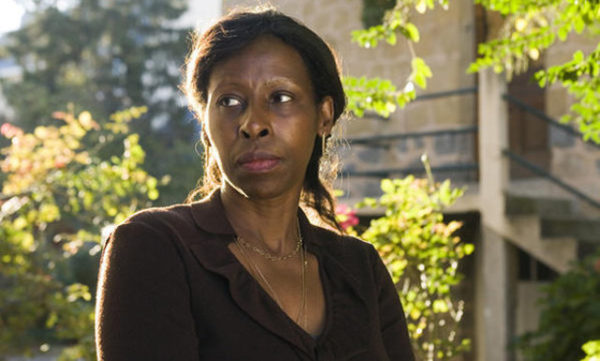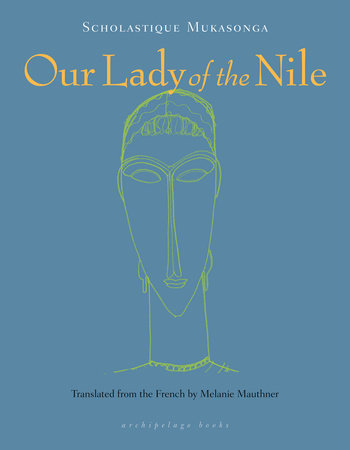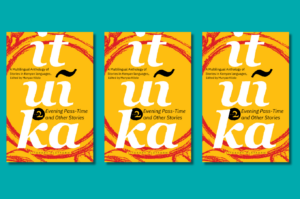
Rwanda’s best known contemporary writer, Scholastique Mukasonga, author of the novel Our Lady of the Nile (2015) and the memoir Cockroaches (2016), has a new short story and interview in The New Yorker. The story, titled “Cattle Praise Song,” is translated from French by Melanie Mauthner. “I was seven years old and puffed up with pride; I was my father’s little cattle herder,” it begins, told by a Tutsi man who, after the genocide of 1994 in Rwanda, moves back to the country and lives near a Hutu man.
Alongside the story is an interview in which she discusses “Tutsi Life and the Rwandan Genocide.” Her interview answers were also translated from French by The New Yorker fiction editor Deborah Treisman.
In the interview, she revealed that Our Lady of the Nile, which shortlisted for the 2015 FT/Oppenheimer Funds Emerging Voices Award and named a Best Book of 2014 by Publisher’s Weekly, is currently in film production.
In the sixties and seventies in Rwanda, you started learning French in elementary school, at age six. At the Lycée Notre-Dame de Citeaux, which inspired my novel “Our Lady of the Nile,” French was the only language allowed. (A movie adaptation of that novel is currently being filmed in Rwanda and will be in cinemas in the spring of 2019.) Kinyarwanda was banned and using it was grounds for expulsion. So French became my second mother tongue, but it didn’t erase my first language. I’m proud to speak Kinyarwanda “beautifully.” My father made it a point of honor.

Our Lady of the Nile first appeared in French as Notre-Dame du Nil and won the Ahamadou Kourouma prize and the Renaudot prize in 2012, as well as the Océans France Ô prize in 2013 and the French Voices Award in 2014. Here is a description from Mukasonga’s website:
In her first novel, Our Lady of the Nile, originally published in 2012 by Gallimard, Scholastique Mukasonga drops us into an elite Catholic boarding school for young women perched on the ridge of the Nile. Parents send their daughters to Our Lady of the Nile to be molded into respectable citizens . . . and to escape the dangers of the outside world. Fifteen years prior to the 1994 Rwandan genocide, we watch as these girls try on their parents’ preconceptions and attitudes, transforming the lycée into a microcosm of the country’s mounting racial tensions and violence. In the midst of the interminable rainy season, everything unfolds behind the closed doors of the school: friendship, curiosity, fear, deceit, prejudice, and persecution. With a masterful prose that is at once subtle and penetrating, Mukasonga captures a society hurtling toward horror.
The Rwandan literary scene is seeing a small renaissance. In January 2017, we ran a feature on how the Huza Press Prize for Fiction is reshaping Rwandan literature. In July of this year, we covered the publication of Clemantine Wamariya’s The Girl Who Smiled Beads, a devastating, beautiful memoir of the Rwandan Genocide. We shared an excerpt also. A film adaptation of Our Lady of the Nile will surely put more focus on Rwanda’s budding literature.









COMMENTS -
Reader Interactions